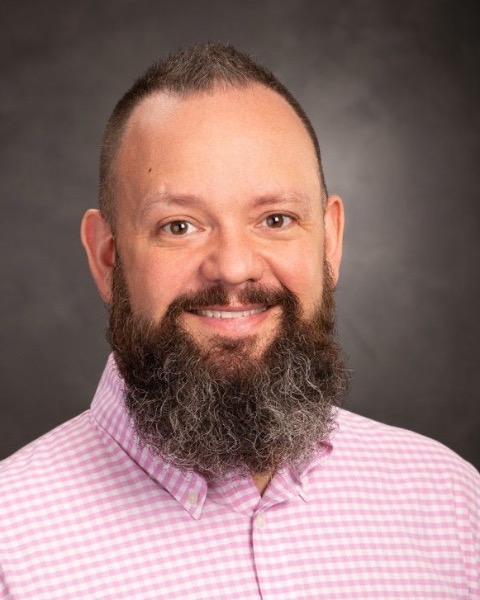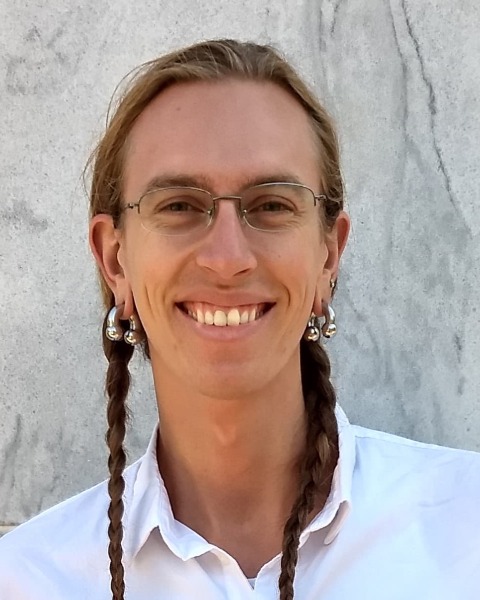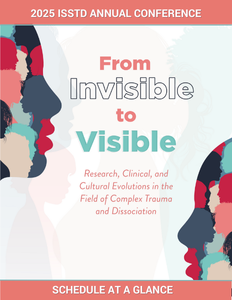Back
90 Minute Workshop
Benefits and Harms of Naturalistic Mind-manifesting Drug Use in Traumatized Individuals
Monday, March 17, 2025
8:30 AM – 10:00 AM US Eastern Time
Location: Berkeley
Learning Level: Beginning

Jonathan M. Cleveland, PhD (he/him/his)
Clinical Faculty
Wright State University
Dayton, Ohio, United States
CJ Healy, MA
Psychology Intern
Lenox Hill Hospital
New York, New York, United States
Abstract
Rapidly accumulating research has been demonstrating both the therapeutic benefits and the potential harms of the use of mind-manifesting drugs – including psilocybin (found in so-called “magic mushrooms”), LSD, ayahuasca, MDMA, and ketamine – in both clinical and naturalistic (non-clinical) settings. Recent interest has been turned toward the effects of mind-manifesting drugs among people with histories of complex trauma in childhood. This 90-minute workshop will review the extant literature, including data from original research studies conducted by the presenters, on the use of mind-manifesting drugs outside formal clinical settings by people with childhood trauma histories. Presentations will focus on empirical data from research studies as well as theoretical proposals regarding why a history of childhood trauma might be a unique factor that paradoxically predisposes people toward a higher likelihood of experiencing therapeutic benefits but also possibly experiencing long-lasting harmful effects. One presenter (CJ Healy) will focus on recent studies that have demonstrated mental health benefits and other psychological benefits of the use of mind-manifesting drugs in naturalistic (non-clinical) settings; the presentation will review a number of studies that have reported significant long-term therapeutic effects associated with the naturalistic use of mind-manifesting drugs, including data from three original research studies on which the presenter served as primary investigator or co-investigator, with a particular focus on the use of mind-manifesting drugs in group ritual-based naturalistic settings. The presentation will also review relevant theoretical models and empirical data regarding the psychological and neurobiological mechanisms of therapeutic action of mind-manifesting drugs in order to present theoretical hypotheses regarding how mind-manifesting drugs might produce the therapeutic effects that have been observed among people with childhood trauma. A second presenter (Jon Cleveland) will discuss his research indicating that that those who experience lingering adverse effects following naturalistic use of mind-manifesting drugs (posited in HPPD), are likely to have histories of childhood trauma and significant current symptoms of PTSD. He will explicate a theory regarding this symptomatology that it qualifies as post-traumatic and, often, as constituting complex trauma. The presenter will describe case studies of related phenomenological experiences, exploring the ways in which distressing and persisting drug-induced experiences constitute symbolic reenactments of earlier untreated adverse experiences (often childhood trauma). Modified application of established approaches for this unique condition will be discussed. Presentations will be followed by ample time for question-and-answer and discussion with the audience.
Rapidly accumulating research has been demonstrating both the therapeutic benefits and the potential harms of the use of mind-manifesting drugs – including psilocybin (found in so-called “magic mushrooms”), LSD, ayahuasca, MDMA, and ketamine – in both clinical and naturalistic (non-clinical) settings. Recent interest has been turned toward the effects of mind-manifesting drugs among people with histories of complex trauma in childhood. This 90-minute workshop will review the extant literature, including data from original research studies conducted by the presenters, on the use of mind-manifesting drugs outside formal clinical settings by people with childhood trauma histories. Presentations will focus on empirical data from research studies as well as theoretical proposals regarding why a history of childhood trauma might be a unique factor that paradoxically predisposes people toward a higher likelihood of experiencing therapeutic benefits but also possibly experiencing long-lasting harmful effects. One presenter (CJ Healy) will focus on recent studies that have demonstrated mental health benefits and other psychological benefits of the use of mind-manifesting drugs in naturalistic (non-clinical) settings; the presentation will review a number of studies that have reported significant long-term therapeutic effects associated with the naturalistic use of mind-manifesting drugs, including data from three original research studies on which the presenter served as primary investigator or co-investigator, with a particular focus on the use of mind-manifesting drugs in group ritual-based naturalistic settings. The presentation will also review relevant theoretical models and empirical data regarding the psychological and neurobiological mechanisms of therapeutic action of mind-manifesting drugs in order to present theoretical hypotheses regarding how mind-manifesting drugs might produce the therapeutic effects that have been observed among people with childhood trauma. A second presenter (Jon Cleveland) will discuss his research indicating that that those who experience lingering adverse effects following naturalistic use of mind-manifesting drugs (posited in HPPD), are likely to have histories of childhood trauma and significant current symptoms of PTSD. He will explicate a theory regarding this symptomatology that it qualifies as post-traumatic and, often, as constituting complex trauma. The presenter will describe case studies of related phenomenological experiences, exploring the ways in which distressing and persisting drug-induced experiences constitute symbolic reenactments of earlier untreated adverse experiences (often childhood trauma). Modified application of established approaches for this unique condition will be discussed. Presentations will be followed by ample time for question-and-answer and discussion with the audience.
Learning Objectives:
At the conclusion of this session participants will be able to:
- Describe potential therapeutic benefits of naturalistic use of mind-manifesting drugs by people with childhood trauma
- Discuss potential psychological mechanisms of action by which mind-manifesting drugs might produce therapeutic effects
- Compare potential therapeutic effects of mind-manifesting drugs on sense of self, emotional experiences, and relational/interpersonal functioning
- Analyze the content of lingering adverse drug experiences as symbolically encoded dissociated traumatic content
- Describe the application of established methods of trauma therapy for treating adverse drug experiences

